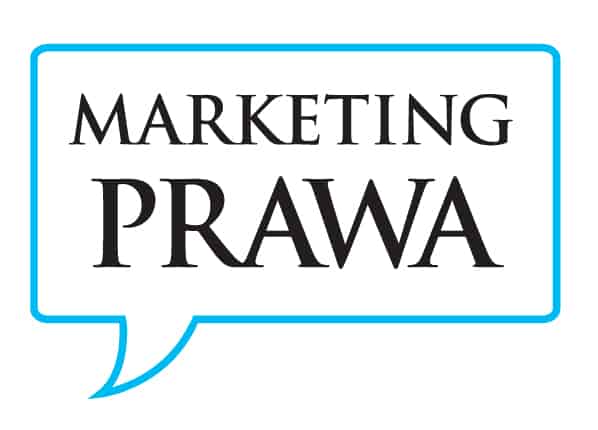KM a polscy prawnicy
- sie 16, 2010
- By Szymon Kwiatkowski
- In Zarządzanie kancelarią
- 2 komentarze
KM – czyli Knowledge Management. Poszukiwałem informacji na temat sposobów zarządzania wiedzą w kancelariach, przeglądając zasoby internetu natknąłem się na quasi-wywiad, którego udzielił Tomasz Wardyński dla portalu www.adamsmithesq.com. Oprócz wielu ciekawych informacji, na które można się natknąć czytając wywiad moją uwagę przykuwają wypowiedzi dotyczące zarządzania wiedzą pracowników kancelarii. Kancelaria wprowadziła 5 lat temu między innymi profesjonalny system zarządzania wiedzą. Zapewne jest to rozbudowane narzędzie jako, że kancelaria zatrudnia kilkudziesięciu adwokatów i radców prawnych.
Zarządzanie wiedzą to jednak nie tylko rozbudowane systemy IT. Należy pamiętać, że KM to także wiele innych czynników wpływających na kancelarię:
- wspólna wizja przedsiębiorstwa nastawionego na kształcenie, naukę
- kultura pracy, zarządzania, motywowania pracowników podejmujących ryzyko ciągłego poszukiwania nowych, lepszych dróg i rozwiązań
- promowanie tych, którzy aktywnie włączają się w zarządzanie wiedzą.
Zauważ więc, że zarządzanie wiedzą to nie tylko systemy IT. Faktem jest, że aplikacje usystematyzują wiedzę, ułatwią jej dystrybucję, podział między pracownikami. Jednak samo ich wdrożenie nie spowoduje, że od tego momentu wykorzystywana wiedza będzie swobodnie dystrybuowana. Równie ważna jest kultura pracy w kancelarii, sposoby zarządzania kadrami i wiele innych elementów, w tym te wymienione w punktach powyżej. Dlatego nawet jeżeli nie możesz pozwolić sobie na wdrożenie systemów zarządzania wiedzą równie ważne jest abyś wprowadzał w życie pozostałe elementy. Zagwarantują one w przyszłości lepsze podłoże do implementacji aplikacji IT.
Zamiast specjalistycznych aplikacji
Jeżeli nie możesz pozwolić sobie na wprowadzenie w swojej kancelarii systemów wspierających KM warto wprowadzić darmowe narzędzia dostępne na rynku lub nawet te, zainstalowane na pracowniczych komputerach.
By ułatwić komunikację w zespole można wprowadzić listę dyskusyjną poświęconą konkretnej tematyce. Dzięki takiemu rozwiązaniu prawnicy pracujący np. w dziale nieruchomości mogą swobodnie wymieniać się informacjami i danymi. Lista daje również gwarancje, że zapisane do niej osoby zawsze otrzymają wiadomość i będą mogły w przyszłości swobodnie do niej wrócić.
Warto również ujednolicić sposób gromadzenia (miejsce oraz nazewnictwo plików) i przeszukiwania wysłanych pism.
Dobrym pomysłem może być także prowadzenie wewnętrznych spotkań wybranej grupy pracowników, podczas których mogą być poruszane problemy związane z prowadzonymi sprawami. Grupa może wtedy na podstawie jednego zdarzenia tworzyć schematy rozwiązań i wspólnie uczyć się.
Metod zarządzania wiedzą może być wiele i nie zawsze muszą one być związane z najnowszymi systemami IT. Czasem warto na początku wykorzystać te narzędzia, które są dostępne „od ręki” oraz dokonać zmian w sposobie współpracy w grupie, kultury pracowniczej. Warto przekształcać kancelarię w firmę uczącą się.
Polecam również Twojej uwadze wspomniany quasi-wywiad z Tomaszem Wardyńskim:
Last week I had a chance to sit down with Tomasz Wardynski, founding partner of Wardynski & Partners, based in Warsaw, which is now a firm of close to 250 people including 137 lawyers with 22 partners, of whom 9 are equity and 13 are salaried or limited partners.
I was looking for perspective on the Eastern and Central European markets, and Tomasz was more than prepared to oblige.
„2010 will be very very tough,” he began. „There is no more inertia” remaining in the system from the end of the boom. Therefore, he opined, the challenge for senior management is to „change the partners’ attitudes.” Tomasz was pellucidly clear that it was not optional for partners to decide whether to go along.
„For the first time in my firm, the equity partners will need to make substantial investments of capital.” And if someone resists making the capital contribution? „Well, then, they won’t be an equity partner, will they? That is always their choice.” And: „It’s really very simple: You need to make sure you have fewer people than there is work to do.”
Recently the firm has shifted to pure lockstep compensation of partners. Previously, there had been a small retention, which was then distributed in the discretion of management, but they decided to end it because „it involved too much emotion: not worth it.” Progress through the lockstep is based on a subjective evaluation of performance plus an expectation of 2,000 hours/year, „which is not very demanding, after all.”
„How do you train people?”
„Well, this is an issue because the universities are not very good at it. It’s a combination of watching, lectures, and the firm’s own 'development center.'” Training clearly represents a substantial investment by, and commitment on behalf of, the firm.
The path to partnership is 8 to 10 years, during which associates are paid based on merit: „Some of them make more than limited partners.”
How does he feel about media coverage of the legal industry?
„Rankings are put together by smart media outlets to play to the vanity of lawyers.” And, he added in emphatic words, those rankings are extremely detrimental to the profession. „Perhaps the only media phenomenon that’s more destructive than rankings is the American Lawyer profits-per-partner numbers. This is simply awful; they have transformed the profession, and they claim innocence. Preposterous.”
Clearly, Tomasz believes the AmLaw PPP numbers are not only a caustic influence on behavior, but borderline fraudulent. The problem with the PPP numbers’ accuracy? „Running a law firm is a cash business. But if I want to inflate profits by accruing some expenses and some revenues, I can come up with any numbers you like.”
Tomasz expressed a strong belief in highly professional management of his firm. „Five years ago we started introducing professional management systems into the business–human resources, information technology, knowledge management, and coaching for all lawyers.” Surely not all lawyers, I interjected? „Well, yes, all. And we have a very strong CFO who manages our finances extremely closely.”
What’s your biggest management challenge in this environment?
„The hardest problem to deal with is people who are very talented but who don’t have enough work to do. That’s the hardest by far.”
What else are you dealing with that’s new?
„Last year we decided not to pay out profits from the firm above the level of partners’ standard draw. This is a protective measure.” And how long will you keep this in place? „I foresee a downturn in the shape of an 'L,’ not a 'V.'”
Let’s step back, I suggest: Why did you decide to start the firm?
„I had no choice but to start the firm. I had clients needing to get deals done.”
And did you envision its growing so large?
Without missing a beat: „Yes. We were clearly in the right place at the right time.”
What other issues are you facing today that are new?
„The next issue will be whether clients can pay. The challenge of course is that you can’t really protect yourself because you can’t demand payment up-front, and you can’t sue clients.”
What else? How about keeping the talent pipeline flowing?
„Yes, absolutely! You cannot stop recruiting, so all you can do is to share the risk with people, to the extent they can bear it. This recession may last a long time.”
Other worries?
„That state intervention–not just in Eastern Europe, but in the US, the UK, conceivably even Asia–may suppress investment and entrepreneurship. The very notion that some institutions are 'too big to fail’ is monstrous. Failure is what some of these banks richly deserve; they have it coming to them. The namesake of your site would be apoplectic.”
How’s the regional CEE environment?
„Poland actually has +0.8% growth this year; it’s not great, but it’s greater than zero.
„Hungary has been suffering for two years.
„Latvia is very bad.
„Ukraine: Disaster!”
But overall Tomasz remains an optimist:
„Life is strong, and it will continue. The economy will be boiling again in places where it seems unimaginable today.
„What really counts at this moment is discipline. People have to be mobilized. You cannot lose…[he appears to be momentarily, and uncharacteristically, searching for a word]. You cannot lose speed!
„Even the strong-willed, independent, and autonomous partners have to believe in central management in this environment. It’s too dangerous not to. Not only our livelihoods, but the welfare of our families and our children are at stake.
„Life is not a fairy-tale.”
Artykuły możesz również czytać na facebooku lub otrzymywać je raz w miesiącu poprzez newsletter. Zapraszam również do bezpośredniego kontaktu.
Szymon Kwiatkowski
MarketingPrawa.pl Produkcje.fm
2 komentarze
Leave a Reply Cancel Reply
Ostatnie wpisy
- Nie planuj przyszłości. „Planuj” przeszłość. 16 stycznia 2022
- 5 kroków do skutecznego webinaru. Złoto. 18 października 2021
- 10 kampanii e-mail marketingowych dla kancelarii prawnych 25 marca 2021
- Jak obliczyć swoją podstawową stawkę godzinową? 11 lutego 2020
- Najważniejsze zmiany w podatkach dla małych kancelarii 18 stycznia 2020





Bardzo ciekawy artykuł Szymonie!
Co do zarządzania wiedzą i wykorzystywanych tutaj narzędzi, dobrze w pewnym zakresie może się sprawdzić blog. To nie jest moja teoria 🙂 …, ale amerykanie sprawdzili, że blog prawniczy prowadzony przez któryś z działów kancelarii, jest świetnym narzędziem edukacyjnym nie tylko klientów, ale również prawników pracujących w tej kancelarii. Przecież nie wszyscy siedzą w jednym temacie i takie źródło wiedzy nie jednemu może się przydać.
Poza tym blogi w pewnym sensie również systematyzują wiedzę, ze względu na jej logiczny układ i łatwy dostęp do poszczególnych jej fragmentów.
Pozdrawiam,
Rafał